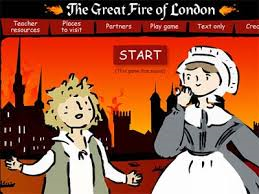Christmas is coming soon but one doesn´t really feel like Christmas until
you have sung some Christmas songs.
Here are some of the most popular. Let´s start with
Mariah Carey´All I Want for Christmas is You.
This is a special version which has become viral in just two days.
Mariah Carey, Adele, Lady Gaga and More Sing ‘All I Want for Christmas’ With James Corden
The video starts with inside the car with presents stacked in the back seat, Carey in the passenger seat and Corden, wearing an ugly holiday sweater, behind the wheel. The pop diva asks Corden to sing her song, which launches into a montage of top musicians including Lady Gaga, Selena Gomez and Adele. Elton John, Demi Lovato and Nick Jonas also get in on the fun, as do Gwen Stefani, Coldplay’s Chris Martin and the Red Hot Chili Peppers.
"All I Want For Christmas Is You"
I don't want a lot for Christmas
There is just one thing I need
I don't care about the presents
Underneath the Christmas tree
I just want you for my own
More than you could ever know
Make my wish come true
All I want for Christmas is you, yeah.
I don't want a lot for Christmas
There is just one thing I need
And I don't care about the presents
Underneath the Christmas tree
I don't need to hang my stocking
There upon the fireplace
Santa Claus won't make me happy
With a toy on Christmas Day
I just want you for my own
More than you could ever know
Make my wish come true
All I want for Christmas is you
You, baby
Oh, I won't ask for much this Christmas
I won't even wish for snow
And I'm just gonna keep on waiting
Underneath the mistletoe
I won't make a list and send it
To the North Pole for Saint Nick
I won't even stay awake to
Hear those magic reindeer click
'Cause I just want you here tonight
Holding on to me so tight
What more can I do?
Baby, all I want for Christmas is you
You, baby
Oh, all the lights are shining
So brightly everywhere
And the sound of children's
Laughter fills the air
And everyone is singing
I hear those sleigh bells ringing
Santa, won't you bring me the one I really need?
Won't you please bring my baby to me?
Oh, I don't want a lot for Christmas
This is all I'm asking for
I just want to see my baby
Standing right outside my door
Oh, I just want you for my own
More than you could ever know
Make my wish come true
Baby, all I want for Christmas is you
You, baby
All I want for Christmas is you, baby
All I want for Christmas is you, baby
All I want for Christmas is you, baby
All I want for Christmas is you, baby
There is just one thing I need
I don't care about the presents
Underneath the Christmas tree
I just want you for my own
More than you could ever know
Make my wish come true
All I want for Christmas is you, yeah.
I don't want a lot for Christmas
There is just one thing I need
And I don't care about the presents
Underneath the Christmas tree
I don't need to hang my stocking
There upon the fireplace
Santa Claus won't make me happy
With a toy on Christmas Day
I just want you for my own
More than you could ever know
Make my wish come true
All I want for Christmas is you
You, baby
Oh, I won't ask for much this Christmas
I won't even wish for snow
And I'm just gonna keep on waiting
Underneath the mistletoe
I won't make a list and send it
To the North Pole for Saint Nick
I won't even stay awake to
Hear those magic reindeer click
'Cause I just want you here tonight
Holding on to me so tight
What more can I do?
Baby, all I want for Christmas is you
You, baby
Oh, all the lights are shining
So brightly everywhere
And the sound of children's
Laughter fills the air
And everyone is singing
I hear those sleigh bells ringing
Santa, won't you bring me the one I really need?
Won't you please bring my baby to me?
Oh, I don't want a lot for Christmas
This is all I'm asking for
I just want to see my baby
Standing right outside my door
Oh, I just want you for my own
More than you could ever know
Make my wish come true
Baby, all I want for Christmas is you
You, baby
All I want for Christmas is you, baby
All I want for Christmas is you, baby
All I want for Christmas is you, baby
All I want for Christmas is you, baby
We Are the World
an American group of Artists(USA) for Africa in 1985. It was written
by Michael Jackson and Lionel Richie.
"We're The World (USA For Africa)"
There comes a time when we heed a certain call
When the world must come together as one
There are people dying
And it's time to lend a hand to life
The greatest gift of all
We can't go on pretending day by day
That someone, somewhere will soon make a change
We all are a part of God's great big family
And the truth, you know,
Love is all we need
[Chorus:]
We are the world, we are the children
We are the ones who make a brighter day
So let's start giving
There's a choice we're making
We're saving our own lives
It's true we'll make a better day
Just you and me
Send them your heart so they'll know that someone cares
And their lives will be stronger and free
As God has shown us by turning stone to bread
So we all must lend a helping hand
[Chorus]
When you're down and out, there seems no hope at all
But if you just believe there's no way we can fall
Well...well...well
Let's realize that a change can only come
When we stand together as one
[Chorus]
When the world must come together as one
There are people dying
And it's time to lend a hand to life
The greatest gift of all
We can't go on pretending day by day
That someone, somewhere will soon make a change
We all are a part of God's great big family
And the truth, you know,
Love is all we need
[Chorus:]
We are the world, we are the children
We are the ones who make a brighter day
So let's start giving
There's a choice we're making
We're saving our own lives
It's true we'll make a better day
Just you and me
Send them your heart so they'll know that someone cares
And their lives will be stronger and free
As God has shown us by turning stone to bread
So we all must lend a helping hand
[Chorus]
When you're down and out, there seems no hope at all
But if you just believe there's no way we can fall
Well...well...well
Let's realize that a change can only come
When we stand together as one
[Chorus]
Christmas is All Around
This is a version of the song Love is All Around, sung in the romantic film
Love Actually. Here´s the video:
Michael Bublé
It´s Beginning to Look a Lot Like Christmas
(This is one of my favourites!)











